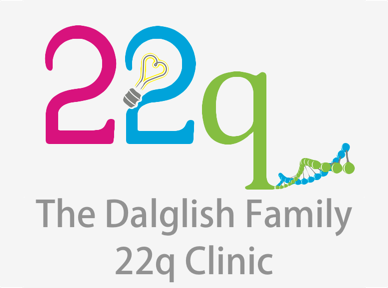COVID-19 information for adults with 22q
Disclaimer: These information pages are provided for educational purposes only. They are not intended to be taken as medical advice. If you have questions or concerns, please discuss them with your doctor or healthcare provider.
Who should receive the COVID-19 vaccine?
Our Clinic recommends that all individuals with 22q as well as their family members receive all the vaccine doses (including boosters) for which they are eligible.
It is recommended that individuals who are at increased risk of severe illness from COVID-19 receive an additional dose of a COVID-19 vaccine in the spring of 2024. These include individuals (including patients with 22q) who are moderately or severely immunocompromised.
Eligible individuals can get their next booster dose if it has been at least six months since their last dose or confirmed COVID-19 infection.
All other individuals are not currently recommended to receive a COVID-19 vaccine dose this spring and should wait until further recommendations are available closer to fall 2024.
For more information and to book your vaccination appointment, please visit the Ontario Government’s COVID-19 vaccines page.Information about COVID-19 Vaccines
All the COVID-19 vaccines approved by Health Canada give excellent protection against the COVID-19 disease. None of them contain any live virus. They cannot cause disease. So they are safe for people with immune deficiencies, just as they are for everyone else in the general population. Even for people who don’t make antibodies very well, the vaccine will help protect against the COVID-19 disease.
If you have any concerns, please check with your doctor. You can also call the VaxFacts Clinic of the Scarborough Health Network to book a phone appointment. VaxFacts is an opportunity for a one-to-one, judgement-free phone call with a physician, to address any questions or concerns about the COVID-19 vaccines. They have successfully counselled hundreds of patients in the past couple of months and have now opened up to all of Canada.
Booking appointments for vaccination against COVID-19
Book an appointment anywhere in Ontario
If you need help booking a vaccination appointment, please call us at (416) 340-5145 or email us at 22q@uhn.ca.
Proof of Vaccination
COVID-19 Symptoms
COVID-19 is a respiratory disease caused by a new coronavirus called SARS-CoV-2.
COVID-19 symptoms and treatment (Government of Canada website)
Self assessment (Government of Ontario website)
How to avoid COVID-19
- Avoid being very near another person
- Wash your hands properly and frequently using soap and water
- If soap and water are not available, use an alcohol-based hand sanitizer
- Wear a mask as an added layer of protection
- Although masks are no longer required in many places in Ontario, a good mask that is worn properly will offer an extra layer of protection when you are indoors or in a crowded situation.
- Avoid touching your eyes, nose, and mouth with your hands
Getting tested for COVID-19 in Ontario
If you have COVID‑19 symptoms and are at a higher risk of severe illness, you should get tested for COVID‑19 (by molecular or rapid antigen test) and seek care as soon as possible, as you may benefit from available COVID‑19 treatments. These treatments must be taken immediately within the first five to seven days (depending on the treatment) of symptom onset.
You can obtain a rapid antigen test at your local public health unit. Please visit the COVID‑19 testing and treatment website of the Government of Ontario for more information.
Guide to self-isolation
If you have any symptoms of illness or tested positive for COVID-19, please:
- Stay away from others, including those in your own home
- Take the online Self-assessment from the Government of Ontario. You will get a recommendation on what to do next.
Reliable resources for information on COVID-19
There is a lot of information on the Internet about the current pandemic, but not everything is accurate.
Please visit the following websites for the most up-to-date and reliable information:
- University Health Network (UHN) - COVID-19 Info/Policies
- City of Toronto
- Public Health Ontario
- Government of Canada - includes outbreak updates, symptoms, prevention, travel, preparation
